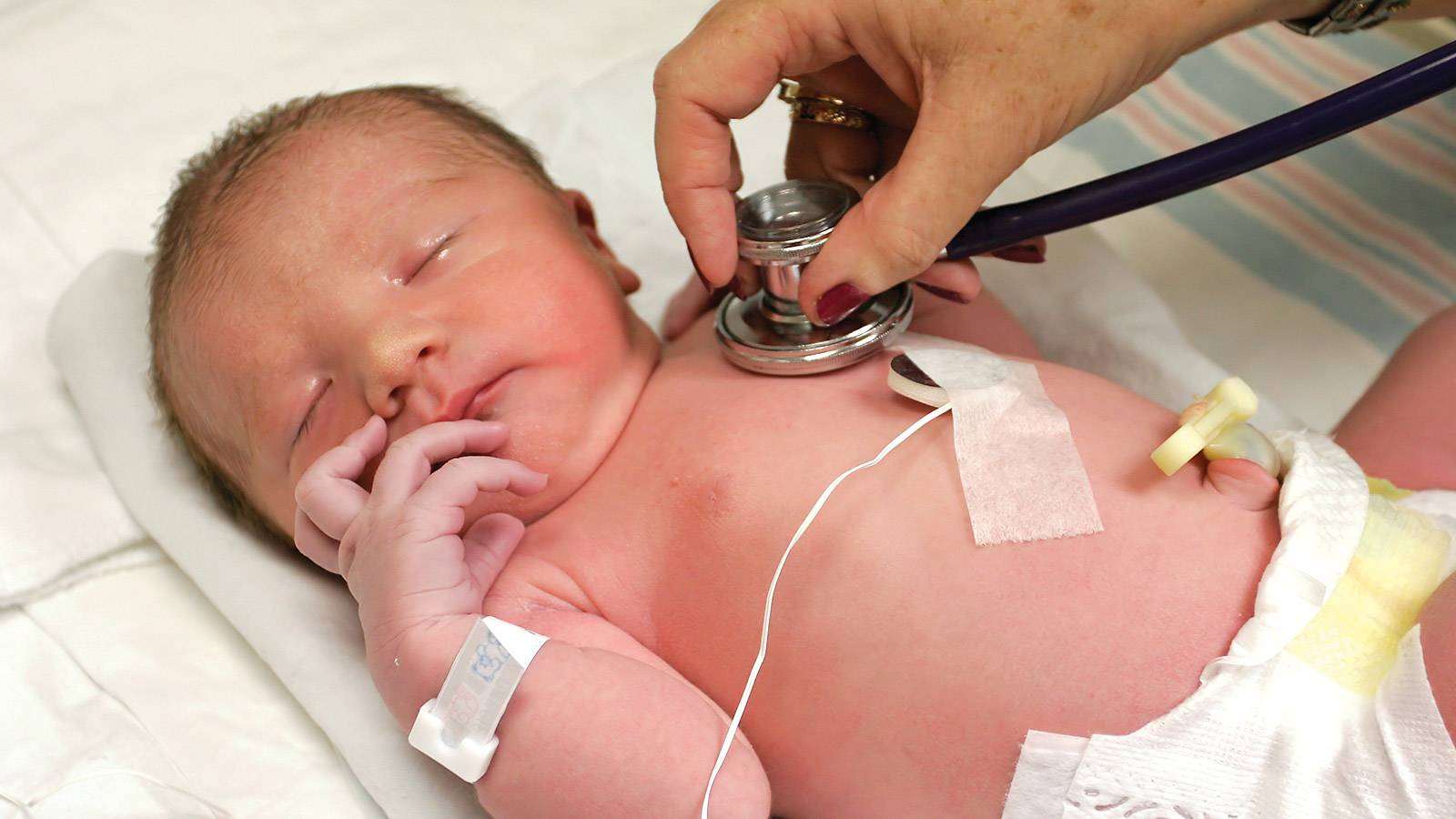SmartParents pediatrician Dr Low Kah Tzay, tells us the health checks that bubba needs.

Your baby’s doctor will carry out a check on your baby soon after they are delivered. They will do a thorough examination, checking their well-being as well as looking for abnormalities such as heart defects, eye abnormalities, undescended testes (if you have a boy) and other conditions.
The paediatrician looks out for bubba's:
Weight
WHEN Immediately after birth
WHAT TO EXPECT Right after birth, the nurse will clean up your baby and place him on a weighing scale. On average, newborns weigh anywhere between 2.5kg and 4kg. However, he’ll lose 10 per cent within a week, double his weight by 4 months and triple it when he’s a year old. His weight is an important marker of growth as it indicates whether he is getting adequate nutrition.
Head
WHEN Immediately after birth
WHAT TO EXPECT Your baby’s head circumference is measured to track his brain growth while his skull bones fuse together. His head will be monitored at regular intervals in his first 18 months of life.
Eyes
WHEN Within 72 hours
WHAT TO EXPECT His eyes are checked for movements and pupil reflexes to detect corneal abnormalities and congenital cataracts. You can rest easy if junior’s eyes move equally and his pupils react to light. During the cataract test, a light will be shone into his eyes to pick up any red reflexes. If red is reflected (the same red-eye effect from flash photography) and the reflections are equal, his eyesight’s normal.
Mouth
WHEN Immediately after birth
WHAT TO EXPECT The doc uses a suctioning device to drain fluid from your sweetie’s lungs and check if the liquid is blood-stained, which suggests issues with his lungs. Next, a nurse will insert her finger in your baby’s mouth to check that he can swallow.
Ears
WHEN 12 hours after birth
WHAT TO EXPECT Two tests that require a microphone to be inserted in the ear will determine if bubba has hearing problems, Otoacoustic Emissions (OAE) and Auditory Brain Stem Response (ABR). For instance, your child has normal hearing if the OAE picks an echo when a sound is played. The test may be repeated at four to six weeks.
Skin
WHEN Immediately after birth
WHAT TO EXPECT He’ll be examined for birthmarks like a haemangioma (a red birthmark that’s a benign tumour of blood vessels) and moles, but these may only become evident a few days or weeks after birth. Other birthmarks they’ll look out for are port-wine stains (a capillary malformation in the skin) and café au lait spots (flat, light-brown spots linked to neurofibromatosis, a tumour disorder).
Spine
WHEN Within 72 hours
WHAT TO EXPECT A paediatrician will examine your baby’s spine to rule out problems such as hairy patch (indicates spina bifida, incomplete closing of the backbone and membranes around the spinal cord) or deep dimple of fats at the bottom of the spine (a sign of lower spinal-cord problems).
Hips
WHEN Several days after birth
WHAT TO EXPECT The Barlow and Ortolani’s tests are conducted to ensure that your baby’s hips aren’t dislocated. In the Barlow move, the paediatrician pushes up your baby’s knees up, such that his thighs are touching each other. If his hips pop out of sockets, he’ll “pop” them back in using Ortolani’s method.
Apgar test
WHEN Between one and five minutes after birth
WHAT TO EXPECT Your doctor will check for Appearance (skin colour), Pulse (heartrate), ability to Grimace (reflexes), Activity (muscle tone) and Respiration (breathing rate and effort). He’s assessed on a scale of zero to 10, and requires immediate attention if he scores anything lower than a two.
Blood test
WHEN At birth to a week after
WHAT TO EXPECT A nurse will prick your baby’s heel with a fine instrument to obtain a few drops of blood. The blood is used to monitor his blood sugar (soon after birth), bilirubin level (for jaundice, from days three to seven), and to check for over 25 metabolic disorders (from days two to five).
Heart and lungs
WHEN At birth, one week and month after birth
WHAT TO EXPECT Your baby’s lungs and heart will be monitored daily until his discharge. As some cardiac conditions are only detected after the first few weeks, look out for symptoms like excessive sweating during feeds and breathlessness. Signs of lung problems include nasal flaring (widened nostrils when breathing), chest-wall retractions (the skin is sucked in while inhaling) or grunting respirations (noisy breathing).
Genitals
WHEN Several days after birth
WHAT TO EXPECT Doctors usually check males for undescended testicles in the scrotum — this condition is usually corrected by a procedure after 6 months. Female genitals are examined to ensure that there’s no clitomegaly (an enlarged clitoris) or that the labia hasn’t fused.
Dr Low Kah Tzay is a paediatrician at Anson International Paediatric & Child Development Clinic.
Photo: iStock
Like us on Facebook and check SmartParents regularly for the latest reads!
Elsewhere on SmartParents.sg…
When can I bring my newborn out?
